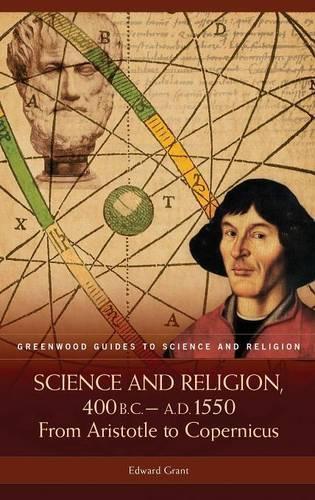
Science and Religion, 400 B.C. to A.D. 1550: From Aristotle to Copernicus
(Hardback)
Publishing Details
Science and Religion, 400 B.C. to A.D. 1550: From Aristotle to Copernicus
By (Author) Edward Grant
Bloomsbury Publishing PLC
Greenwood Press
30th December 2004
United States
Classifications
General
Non Fiction
Philosophy of science
History: specific events and topics
215.09
Physical Properties
Hardback
336
Description
Many people believe that during the Middle Ages Christianity was actively hostile toward science (then known as natural philosophy) and impeded its progress. This comprehensive survey of science and religion during the period between the lives of Aristotle and Copernicus demonstrates how this was not the case. Medieval theologians were not hostile to learning natural philosophy, but embraced it. Had they had not done so, the science that developed during the Scientific Revolution would not - and could not - have occurred. tudents and lay readers will learn how the roots of much of the scientific culture of today originated with the religious thinkers of the Middle Ages. Science and Religion, 400 B.C. to A.D. 1550 thoroughly covers the relationship between science and religion in the medieval period, and provides many resources for the student or lay reader: It discusses how the influx of Greek and Arabic science in the 12th and 13th centuries dramatically changed how science was viewed in Western Europe; and demonstrates how medieval universities and their teachers disseminated a positive attitude toward rational inquiry and made it possible for Western Europe to become oriented toward science. The volume includes primary documents and an annotated bibliography.
Author Bio
EDWARD GRANT is Distinguished Professor Emeritus of History and Philosophy of Science at Indiana University, Bloomington. He is the author or editor of ten books, including The Foundations of Modern Science in the Middle Ages and God and Reason in the Middle Ages.
